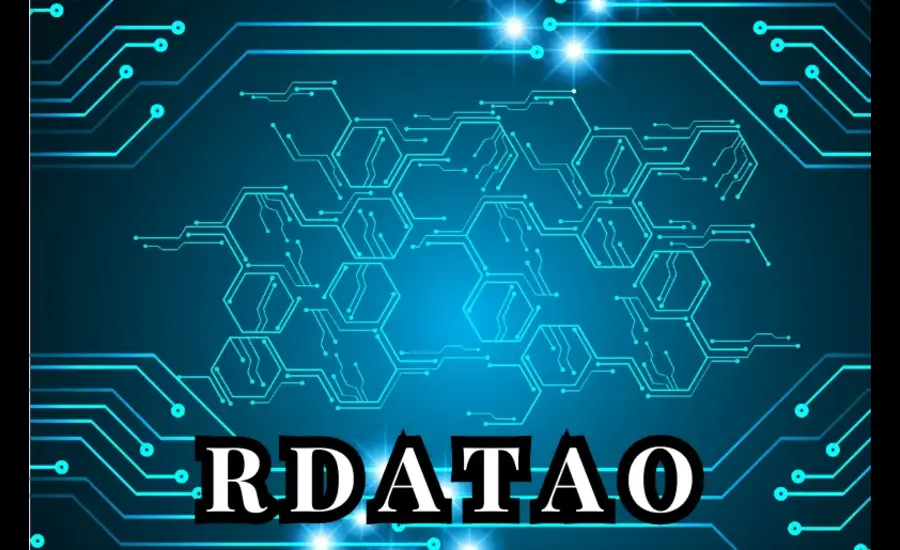Understanding Rdatao: Exploring Its Uses and Benefits
Introduction
In an ever-evolving technological landscape, the need for advanced data management and processing tools has never been more critical. Rdatao emerges as a significant player in this arena, offering innovative solutions that cater to various data-related challenges. This article delves into Rdatao, exploring its fundamental uses, benefits, and the impact it can have on data management and analytics.
What is Rdatao?
Rdatao is a cutting-edge platform designed to streamline data management and enhance analytical capabilities. It integrates various data processing features into a unified system, providing users with a robust tool for handling complex data operations. Rdatao’s design is rooted in addressing common challenges faced by organizations when dealing with large volumes of data, including data integration, quality management, and real-time analytics.
At its core, Rdatao offers a versatile environment that supports a range of data formats and sources. This flexibility allows users to consolidate data from disparate systems into a single repository, facilitating more coherent analysis and reporting. Furthermore, the platform is engineered to handle both structured and unstructured data, making it a comprehensive solution for diverse data needs.
Key Features of Rdatao
One of the standout features of Rdatao is its ability to perform advanced data integration. The platform provides seamless connectivity with various data sources, including databases, cloud storage solutions, and external APIs. This integration capability ensures that users can access and combine data from multiple origins, enhancing the depth and accuracy of their analyses.
Rdatao also boasts powerful data cleansing tools. Data quality is a critical concern in any data-driven decision-making process, and Rdatao addresses this by offering features that automate the detection and correction of data inconsistencies. These tools help maintain high data integrity, which is essential for reliable insights and accurate reporting.
Another notable feature is Rdatao’s real-time analytics capability. In today’s fast-paced business environment, the ability to analyze data in real time can provide a significant competitive advantage. Rdatao’s real-time analytics engine allows users to process and visualize data as it is generated, enabling more timely and informed decision-making.
Benefits of Using Rdatao
Furthermore, Rdatao delivers a range of benefits that can transform how organizations handle and utilize their data. One of the primary advantages is its ability to enhance data accessibility and integration. By providing a centralized platform for data management, Rdatao eliminates the need for multiple disparate systems and simplifies data access for users. This streamlined approach reduces the complexity associated with managing data from various sources and improves overall efficiency.
The platform’s data cleansing features contribute significantly to its value proposition. Ensuring data accuracy and consistency is crucial for effective analysis and decision-making. Rdatao’s automated cleansing tools reduce the manual effort required to maintain data quality, minimizing errors and improving the reliability of insights derived from the data.
Real-time analytics is another significant benefit offered by Rdatao. The ability to process and analyze data in real time enables organizations to respond swiftly to emerging trends and issues. This capability is particularly valuable in dynamic industries where timely insights can drive competitive advantage and operational efficiency.
Applications of Rdatao
Rdatao’s versatility makes it applicable across various industries and use cases. Furthermore, in the financial sector, for instance, the platform can be used to integrate and analyze data from multiple sources, such as transaction records and market data. This integration allows for more comprehensive financial analysis and reporting, helping organizations better understand market trends and manage risk.
In the healthcare industry, Rdatao’s data management capabilities can enhance patient care by consolidating data from electronic health records, clinical trials, and other sources. The platform’s real-time analytics can assist healthcare providers in monitoring patient outcomes and identifying areas for improvement in treatment protocols.
Retailers can also benefit from Rdatao by using its data integration and analytics features to gain insights into customer behavior and sales trends. By analyzing data from various sources, including point-of-sale systems and customer feedback, retailers can optimize their inventory management, personalize marketing efforts, and enhance the overall customer experience.
Challenges and Considerations
While Rdatao offers numerous advantages, it is essential to consider some potential challenges when implementing the platform. Furthermore, one of the primary considerations is the complexity of integrating Rdatao with existing systems. Organizations may need to invest time and resources in ensuring seamless integration and addressing any compatibility issues that arise.
Another consideration is the need for training and support. As with any advanced data management platform, users may require training to fully leverage Rdatao’s features and capabilities. Ensuring that staff members are adequately trained can help maximize the benefits of the platform and ensure its successful implementation.
Data security is also a critical concern when using any data management tool. Organizations must ensure that Rdatao’s security features align with their data protection requirements and industry regulations. Implementing robust security measures and regularly reviewing security protocols can help safeguard sensitive information and maintain compliance.
Future Prospects for Rdatao
Furthermore, the future of Rdatao looks promising, with ongoing advancements in data management technology likely to enhance its capabilities further. As the demand for more sophisticated data processing and analytics tools continues to grow, Rdatao is well-positioned to evolve and adapt to emerging trends and technologies.
Future developments may include enhanced artificial intelligence and machine learning capabilities, allowing for even more advanced data analysis and predictive modeling. Integration with emerging technologies, such as blockchain, could also provide new opportunities for secure and transparent data management.
Additionally, as organizations increasingly adopt cloud-based solutions, Rdatao may expand its cloud integration features to offer more flexibility and scalability. This evolution would enable users to leverage the benefits of cloud computing while maintaining the robust data management capabilities that Rdatao provides.
Conclusion
Rdatao represents a significant advancement in data management and analytics, offering a range of features designed to address the challenges of handling large volumes of data. Its capabilities in data integration, cleansing, and real-time analytics make it a valuable tool for organizations across various industries. By enhancing data accessibility, improving data quality, and providing real-time insights, Rdatao can transform how organizations manage and utilize their data.
As with any technology, it is essential to consider potential challenges and ensure that the platform is implemented effectively to maximize its benefits. Furthermore, looking ahead, Rdatao’s continued evolution and adaptation to emerging trends will likely cement its role as a leading solution in the data management landscape. For organizations seeking to enhance their data capabilities and gain a competitive edge, Rdatao offers a promising and powerful solution.
FAQs:
How does Rdatao handle data security?
Rdatao incorporates various security measures to protect data, including encryption, access controls, and compliance with industry standards. Organizations should review and configure Rdatao’s security settings to align with their specific data protection needs and regulatory requirements.
What are the future prospects for Rdatao?
The future prospects for Rdatao include potential enhancements such as advanced artificial intelligence and machine learning capabilities, integration with emerging technologies like blockchain, and expanded cloud-based solutions. These developments will likely further enhance Rdatao’s data management and analytics capabilities.
How can I get started with Rdatao?
Furthermore, to get started with Rdatao, you can visit the official website to explore its features, request a demo, or contact the sales team for more information. It is also advisable to review the platform’s documentation and training resources to understand its capabilities and implementation process.
How does Rdatao ensure data quality?
Rdatao ensures data quality through its automated data cleansing tools. These tools help identify and correct errors, inconsistencies, and duplicates in the data. By maintaining high data integrity, Rdatao enhances the accuracy and reliability of the insights derived from the data.
How does Rdatao integrate with existing systems?
Rdatao integrates with existing systems through a variety of connectors and APIs. It supports data integration from multiple sources, including databases, cloud storage solutions, and external applications. The integration process typically involves configuring connectors and mapping data sources to ensure seamless data flow into the Rdatao platform.






